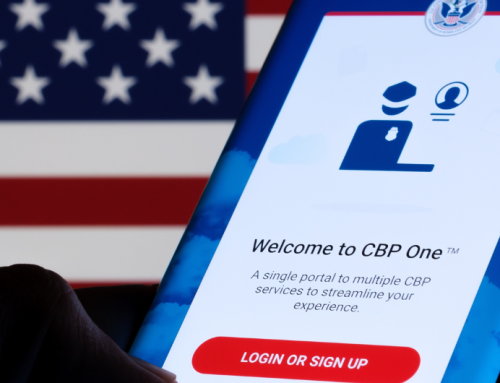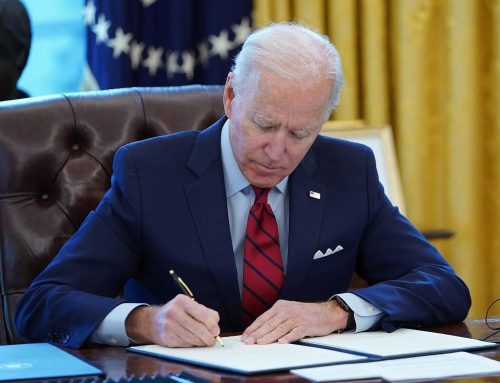Immigration Reform Bill Introduced in US Senate
On April 17, 2013, a group of senators introduced their long-awaited bill for comprehensive immigration reform that would overhaul the immigration system in the United States.
The bill, officially titled “Border Security, Economic Opportunity, and Immigration Modernization Act”, was crafted by the so-called “Gang of Eight”, a bipartisan group of eight senators comprised of Democrats Charles Schumer of New York, Dick Durbin of Illinois, Robert Menendez of New Jersey and Michael Bennet of Colorado; and Republicans John McCain of Arizona, Jeff Flake of Arizona, Lindsey Graham of South Carolina and Marco Rubio of Florida.
Full text of the bill (over 840 pages) is available on Senator Schumer’s website.
According to a summary of the bill published a day earlier, the bill features the following key points:
- Within 180 days, Homeland Security secretary must submit a $4.5 billion plan for surveillance systems, fences, drones and other means to gain “effective control” of high-risk Southern border areas—meaning at least 90% of people attempting to enter illegally are apprehended or turned back.
- At that point, illegal immigrants could register for provisional immigrant status, allowing those who have lived in the U.S. since December 31, 2011, to work for any employer and travel outside the U.S., but not be eligible for federal benefit programs. They would be required to pay a $500 penalty, assessed taxes and a processing fee. People would be disqualified if convicted of a felony or three misdemeanors, among other grounds. The provisional immigrant status would last for a 6-year term that is renewable if the immigrant does not commit any acts that would render the alien deportable. Another $500 penalty fee would be required at the time of renewal.
- Permanent residency status could not be granted until the Homeland Security secretary and other officials declare the border goals to have been met. However, the bill also says people can apply for permanent status after 10 years. After another three years, those immigrants could apply for citizenship. Therefore, the bill would create a minimum 13-year path to citizenship for many of the 11 million undocumented immigrants.
- All employers would be required to use the federal E-Verify system to detect illegal workers, after a five-year phase-in period, and a system must be in place to track people with visas as they leave the country.
- Some agricultural workers and some people brought to the U.S. as children could get green cards in five years. The bill would create a visa for foreigners starting new companies in the U.S.
- The bill would increase the number of H-1B visas for highly skilled workers from the current 65,000 to 110,000. The current 20,000 exemption for U.S. advanced degree holders would be amended to be a 25,000 exemption for advanced degree graduates in science, technology, engineering, and mathematics from U.S. Schools. However, employers who rely heavily on H-1B workers would be required to pay higher fees.
- The bill would create a new “W” visa for low-skilled workers. A new agency would set the annual cap for W visas based on employment conditions and labor shortages.
- The bill would repeal the Diversity Visa Lottery Program. However, foreign nationals who were or are selected for diversity immigrant visas for fiscal years 2013 or 2014 would be able to receive them.
- Merit Based Visa: The merit based visa would be created in the fifth year after enactment, awards points to individuals based on their education, employment, length of residence in the US and other considerations. Those individuals with the most points earn the visas. Those who access the merit based pathway to earn their visa are expected to be talented individuals, individuals in the worker programs and individuals with family in the US. 120,000 visas will be available per year based on merit. The number would increase by 5% per year if demand exceeds supply in any year where unemployment is under 8.5%. There will be a maximum cap of 250,000 visas.
For this bill to become law, it has to pass both the Senate and the House of Representatives, and be signed into law by President Barack Obama. The bill is likely to produce long debates in the Democrat-controlled Senate as well as the Republican-controlled House of Representatives, and may need to be amended before it can pass both chambers.
Yesterday, President Obama has voiced cautious support for the bill, saying in a statement: “This bill is clearly a compromise, and no one will get everything they wanted, including me. But it is largely consistent with the principles that I have repeatedly laid out for comprehensive reform. This bill would continue to strengthen security at our borders and hold employers more accountable if they knowingly hire undocumented workers. It would provide a pathway to earned citizenship for the 11 million individuals who are already in this country illegally. And it would modernize our legal immigration system so that we’re able to reunite families and attract the highly-skilled entrepreneurs and engineers who will help create good paying jobs and grow our economy. These are all commonsense steps that the majority of Americans support. … I stand willing to do whatever it takes to make sure that comprehensive immigration reform becomes a reality as soon as possible.”
The bill has been warmly welcomed by many immigrant rights groups and the American Immigration Lawyers Association (AILA). Referring to the bill, AILA President Laura Lichter said: “Is it perfect? No compromise measure ever is. Is it a good bill? Yes, for the most part it is, and perhaps it is even a great bill in some respects. We do see some further changes that are desirable, and as we delve more deeply into the details, I’m sure we’ll find some needed tweaks. But as a framework for reform, this is closer than we’ve come in years to meaningful change. This bill does not shy away from addressing the difficult issues embedded in current immigration policy. It’s a good start, and I hope that by continuing to work across the aisle, the Senate can pass a bill that will meet our nation’s needs and the House will follow suit.”
Attorneys at I.S. Law Firm have helped many individuals and corporate clients with their immigration matters. To explore your immigration options, please contact us at +1-703-527-1779 or via e-mail: [email protected].






